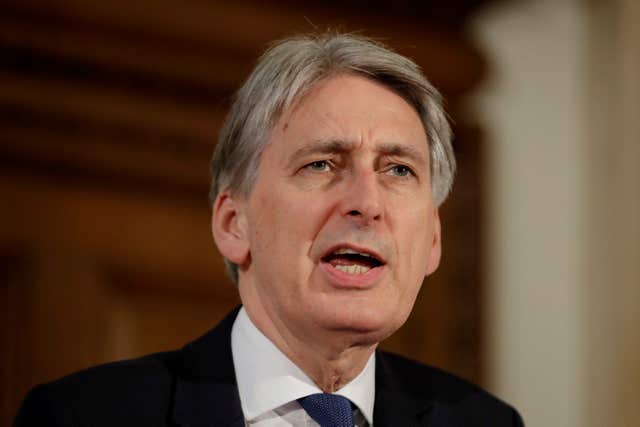The UK economy will benefit from sticking as closely as possible to European Union rules after Brexit, a senior MEP said after talks with Theresa May.
Guy Verhofstadt, the European Parliament’s Brexit co-ordinator, said he wanted the UK to sign an association agreement with the EU to cover its relationship after leaving the bloc.
French economy minister Bruno Le Maire said there had to be a “good deal” with the UK, but the City of London and the financial sector would have to rely on an equivalence regime.
Former Belgian prime minister Mr Verhofstadt visited Downing Street for talks with Theresa May, David Davis and Amber Rudd.
Mr Verhofstadt has warned that the European Parliament will not accept any deal on citizens’ rights that involves discrimination against people who come to the UK during the transition period.
But in a sign that he believes the Government may make further concessions, he told reporters in Downing Street: “I think it is possible that in the coming days and coming weeks we make progress on this, we can conclude on this.”
It’s important that @theresa_may acknowledged that there would be no financial passport post BrexitFinancial services cannot be in a FTA,for reasons of financial stability,of supervision.We have an alternative system that works-it’s the equivalence regime &we should rely on that
— Bruno Le Maire (@BrunoLeMaire) March 6, 2018
Mr Verhofstadt also set out his vision for the future relationship between the UK and EU to be defined within an overall associate agreement rather than a Canada-style trade deal and a series of other pacts.
But he said the best outcome for the UK would be to remain in the single market and customs union, options ruled out by the Prime Minister.
He said: “If the UK stays very near to the rules of the European Union that will secure jobs in Britain. That will be the best way forward for the British economy.
“My preferential choice would be that Britain still is part of the single market, still is part of the customs union, then most problems would be solved.
“That is not the wish of the UK Government.”
Meanwhile, Mr Le Maire was in London for talks with Chancellor Philip Hammond who will set out the Government’s plans for the financial services sector on Wednesday.
In her Mansion House speech on Friday, the Prime Minister set out her plans for Britain and the EU to access each other’s financial markets based on a commitment to maintaining the same “regulatory outcomes”.
Mr Le Maire said the particular circumstances of the financial services industry meant it could not be covered within the scope of a free-trade agreement and the “best solution” would be for equivalence, where both sides recognise each other’s standards.
“We need a good deal. But once again we have to avoid any misunderstanding between the British people and the French people, between the UK and the EU,” he told BBC Radio 4’s Today programme.
“Financial services cannot be in a free-trade agreement, for many reasons, for reasons of stability, for the sake of supervision because there are some very specific rules for financial services.
“So financial services cannot be in a free-trade agreement, but we have an alternative system which is called the equivalence regime.”

Mr Le Maire said: “Our objective for that new framework should be as little friction as possible between the UK and the EU and the lowest-possible tariffs for the UK, because we have to keep in mind that the UK is a very important trade partner for France and the EU.”
In Brussels, the DUP underlined its opposition to the EU’s “fallback” position on the Irish border, which would effectively keep Northern Ireland in the single market if no other solution could be found, in talks with the EU’s Brexit negotiator Michel Barnier.
DUP leader Arlene Foster said: “There are sensible solutions to the border question. Greater flexibility needs to be shown by Brussels.”
Just concluded a constructive meeting with Michel Barnier. There are sensible solutions to the border question. Greater flexibility needs to be shown by Brussels. Unacceptable for NI to be treated separately from rest of UK as set out in the draft EU legal text. pic.twitter.com/LAjg8tRX4T
— Arlene Foster (@DUPleader) March 6, 2018
Met @DUPleader this morning, after my meeting with @sinnfeinireland yesterday. The EU is looking for practical solutions to avoiding a hard border, in full respect of the constitutional status of NI, as set out in the GFA. pic.twitter.com/6elstF3ImH
— Michel Barnier (@MichelBarnier) March 6, 2018
Mr Barnier, who also held talks with Sinn Fein on Monday, said the EU was looking for “practical solutions” to the border issue and upholding the Good Friday Agreement.






